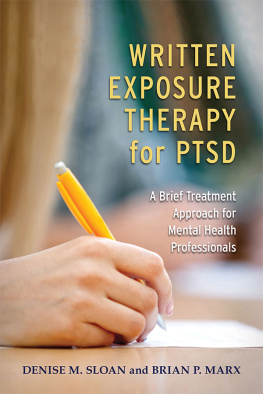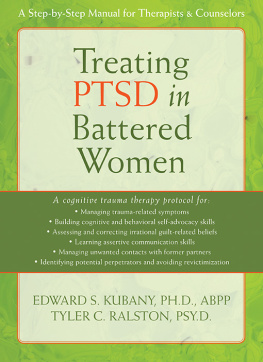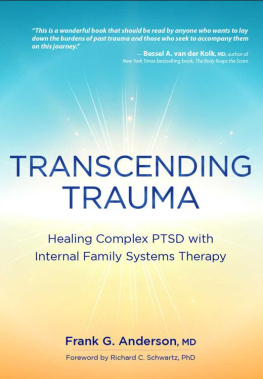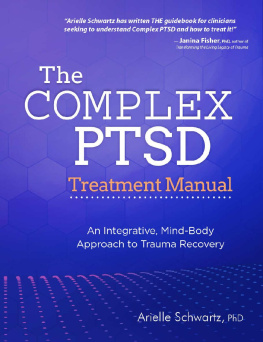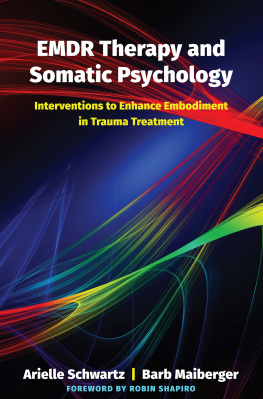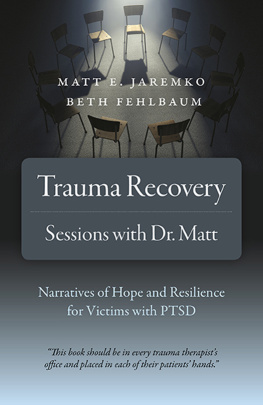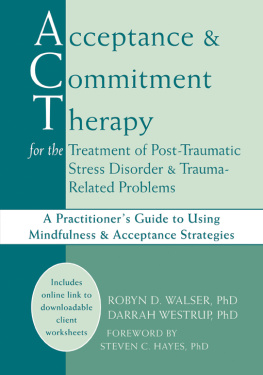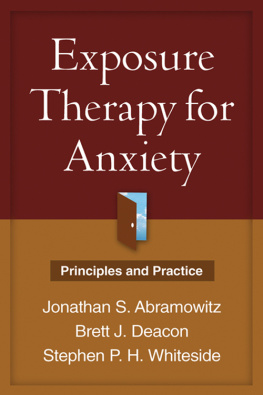CONTENTS
Copyright 2019 by the American Psychological Association. All rights reserved. Except as permitted under the United States Copyright Act of 1976, no part of this publication may be reproduced or distributed in any form or by any means, including, but not limited to, the process of scanning and digitization, or stored in a database or retrieval system, without the prior written permission of the publisher.
Electronic edition published 2019.
ISBN: 978-1-4338-3013-6 (electronic edition).
The was authored by an employee of the United States government as part of official duty and is considered to be in the public domain.
The opinions and statements published are the responsibility of the authors, and such opinions and statements do not necessarily represent the policies of the American Psychological Association. Any views expressed in the foreword do not necessarily represent the views of the United States government, and the authors participation in the work is not meant to serve as an official endorsement.
Published by
American Psychological Association
750 First Street, NE
Washington, DC 20002
https://www.apa.org
Order Department
https://www.apa.org/pubs/books
In the U.K., Europe, Africa, and the Middle East, copies may be ordered from Eurospan
https://www.eurospanbookstore.com/apa
Cover Designer: Nicci Falcone, Gaithersburg, MD
Library of Congress Cataloging-in-Publication Data
Names: Sloan, Denise M., author. | Marx, Brian P., author.
Title: Written exposure therapy for PTSD : a brief treatment approach for mental health professionals / by Denise M. Sloan and Brian P. Marx.
Description: Washington, DC : American Psychological Association, 2019. | Includes bibliographical references.
Identifiers: LCCN 2018051702 (print) | LCCN 2018053102 (ebook) | ISBN 9781433830136 (eBook) | ISBN 1433830132 (eBook) | ISBN 9781433830129 (pbk.) | ISBN 1433830124 (pbk.)
Subjects: LCSH: Post-traumatic stress disorderTreatment. | Brief psychotherapy. | Exposure therapy.
Classification: LCC RC552.P67 (ebook) | LCC RC552.P67 S58 2019 (print) | DDC 616.89/147dc23
LC record available at https://lccn.loc.gov/2018051702
http://dx.doi.org/10.1037/0000139-000
10 9 8 7 6 5 4 3 2 1
For Colinwho teaches us every day about patience, big dreams, hard questions with even harder answers, and detours that lead to unexpected discoveries about ourselves and the world around us.
Foreword
The availability of evidence-based treatments for posttraumatic stress disorder (PTSD) has changed dramatically over the past 2 decades, driven in part by large allocations of funding to expand the care for service members and veterans returning from the wars in Iraq and Afghanistan, who now routinely receive services not available to past generations of warriors. Two trauma-focused psychotherapies, prolonged exposure (PE) and cognitive processing therapy (CPT), mandated for uniform dissemination across Veterans Affairs (VA) facilities, have become the dominant treatments in the United States. Funding for research, including randomized clinical trials, has also expanded, and since these wars began, the VA and the Department of Defense (DoD) have produced three revisions of the clinical practice guideline for PTSD (in 2004, 2009, and 2017).
The most striking change in the latest VA/DoD PTSD clinical practice guideline, informative to clinical practice internationally, is that medications (particularly those targeting serotonin reuptake) are no longer considered equivalent to trauma-focused psychotherapy for the primary treatment of PTSD. The evidence review suggested that individual trauma-focused psychotherapy produced higher and longer lasting effect sizes than medications.
While the increased availability of trauma-focused treatment is good news for service members, veterans, and civilians suffering from the aftermath of trauma, the reality is that progress overall is not as rosy as we would expect after so many years of effort. The foundation for current clinical treatment with PE, CPT, and most other evidence-based trauma-focused therapies involves the same core components delivered over 12 or more 50- to 90-minute sessions, principally repetitive exposure to the traumatic narrative in some fashion and cognitive restructuring or meaning making. The efficacy of these available therapies has not improved over the years due to a number of factors, not the least of which is low engagement among those most in need of services combined with very high noncompletion rates. Efficacious approaches that can be delivered more efficiently and with greater patient satisfaction have been urgently needed for a very long time.
Enter written exposure therapy (WET), the subject of this book, and arguably one of the most exciting developments in traditional trauma-focused psychotherapy for PTSD. WET is the product of more than 15 years of progressive scientific inquiry that explored such domains as the minimum effective dose of exposure therapy, the optimal delivery methods (with multiple nuances), and mechanisms of efficacy, culminating in an exceptional randomized head-to-head noninferiority trial of WET versus CPT. Like many scientific discoveries, the findings were startling, surprising even the principal investigators themselves (the authors of this book).
Noninferiority is a technical term referring to a clinical trial design in which the study is statistically powered to provide reasonable confidence in the equivalence of two treatments. Research has shown that WET is indeed noninferior to CPT in efficacy for PTSD (based on both clinician-administered and self-report measures), as well as depressive symptoms, with results holding for a full year after treatment. However, what is most startling is that the results were achieved with about a tenth of the therapists time. While CPT required 12 individual, face-to-face, hour-long clinical sessions delivered weekly, WET achieved the same outcomes in only five sessions, each of which involved approximately 20 minutes of face-to-face therapy combined with 30 minutes of writing (alone, while remaining in the clinical setting) during which the patient wrote about their traumatic experience. Also startling was the significantly lower dropout rate from treatment for WET participants compared with the CPT group (6% vs. 40%).
Thus, WET is much more than noninferior. It is a potential game changer in PTSD treatment offering equivalent efficacy in a fraction of the time and with significantly higher patient satisfaction (lower dropouts) than the most commonly used standard evidence-based trauma-focused therapy. Moreover, WET is already included under the highest treatment recommendation in the 2017 VA/DoD clinical practice guideline based on clinical trials involving WET and other written narrative exposure therapy approaches (including a dismantling study of CPT). Thus, WET can be considered fully evidence-based, on par with CPT, PE, and other trauma-focused treatments. WET is also a uniquely straightforward off-the-shelf treatment that licensed mental health professionals can feel comfortable delivering as soon as they have read and digested this manual.
This manual satisfies an urgent need for an effective, time-efficient trauma-focused treatment that does not induce patients to run for the clinic door. The nonproprietary nature of WET, requiring no further training or certification, lends itself to wide dissemination in mental health clinics and potentially other settings, such as primary care (with appropriate mental health consultation). For all of these reasons, this groundbreaking book will undoubtedly become an essential addition to the libraries of mental health professionals who treat patients with PTSD.

